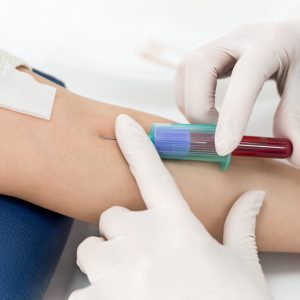Test Taking: Should You Get The Coronavirus Antibody Test?

Test Taking: Should You Get The Coronavirus Antibody Test?
May 20, 2020
If you’ve heard nothing else about the coronavirus, you’ve probably heard the phrase “testing, testing, testing.” Public health experts and political pundits have repeatedly warned that the country cannot limit the spread of COVID-19 and fully open up until we have adequate testing to determine the prevalence of the coronavirus and its effects. Much of the focus has been on the actual viral testing (think nose swabs) to see if you are currently infected with COVID-19. However, as of late, there’s also been a focus on antibody testing, which will not tell you if you are currently infected with the virus but can detect the presence of antibodies in your system, indicating previous exposure to the coronavirus. Unlike viral testing, the antibody test is a blood test, either from a finger-stick or a blood-draw. The question is, should you try to seek out an antibody test and what would such a test tell you?
First and foremost, you should not look to the antibody test to tell you if you currently have COVID-19. It’s not a test to diagnose a current infection and in fact, it’s possible to be newly infected but not yet have produced antibodies- so you can’t rely on the blood test to tell you if you are currently sick with COVID-19. No physician or lab should be using the antibody test on its own to diagnose you with the coronavirus. The antibody test is really intended for epidemiologic, population-based research to determine such factors as the percentage of the population that’s been infected, especially without symptoms or hospitalization, and the lethality rate of the virus.
But there’s much we don’t yet know about coronavirus antibodies and that we will not learn from an antibody test, including the following: 1. Even if you have antibodies in your system, we don’t yet know if that means you are immune from getting re-infected with the coronavirus; 2. Even if the antibodies confer immunity, we don’t know how long that immunity will last and when you may be at risk for re-infection. As one expert commented about antibodies, “At an individual level, none of us is suddenly rendered invincible.”
While the professional advice suggests you only receive an antibody test through a research study, there are antibody tests currently on the market, many of which have received FDA Emergency Use Authorization though have not gone through the usual rigorous FDA testing. Johns Hopkins Bloomberg School of Public Health maintains an up-to-date list of the available antibody tests, both finger stick tests (which provide a rapid response and are considered less reliable) and for more invasive blood tests. Their list also tells you about how long you will wait for a response and what each test will and won’t tell you. Some of these tests are available without a doctor’s order, and with no cost or co-pay, depending on who conducts the test and your insurance coverage. Experts warn you should never buy or conduct an in-home antibody test. Mostly, it’s important to reiterate challenges with these tests: It’s possible to get a false-positive test result (especially if the test is conducted too soon after your infection) which could then give you false assurance that you have built up immunities to the coronavirus. Plus, we just don’t know what the presence of antibodies really means, especially for the long term. Bottom line? At this point, there seems little reason for any individual to seek out an antibody test for personal use- because there’s so much we don’t yet know about the implications of the test results.







